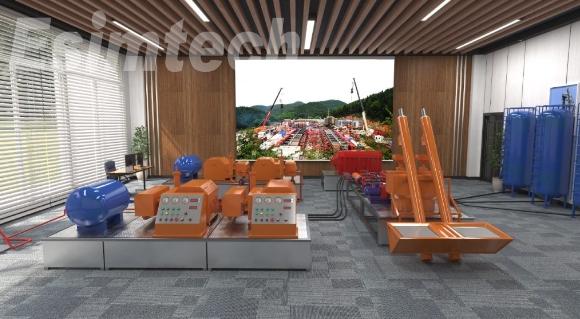Environmental Benefits of Downhole Simulators in Oil and Gas Training

The oil and gas industry has long been associated with environmental challenges. However, advancements in technology, like downhole simulators, are offering innovative solutions to mitigate these risks and promote sustainable practices.
How Downhole Simulators Contribute to Environmental Sustainability:
Reduced Environmental Impact of Drilling Operations:
Minimized Blowouts and Spills: By providing a safe and controlled environment to practice well control procedures, simulators help prevent catastrophic blowouts and oil spills, safeguarding marine and terrestrial ecosystems.
Optimized Drilling Fluids: Simulators allow for testing and optimizing drilling fluids, reducing the volume of fluids required and minimizing the risk of contamination to soil and water.
Reduced Waste Generation: By identifying and preventing potential drilling problems, simulators help minimize the generation of drilling waste, such as cuttings and contaminated fluids.
Enhanced Wellbore Stability and Reduced Drilling Complications:
Improved Wellbore Design: Simulators help engineers design and optimize wellbores, reducing the risk of wellbore instability and the need for remedial operations, which can lead to environmental damage.
Minimized Stuck Pipe Incidents: By training personnel to handle stuck pipe situations effectively, simulators help prevent costly and environmentally damaging sidetracking operations.
Improved Operational Efficiency and Reduced Carbon Footprint:
Reduced Drilling Time: By optimizing drilling operations and minimizing non-productive time, simulators contribute to faster drilling times, reducing the overall carbon footprint associated with drilling activities.
Enhanced Equipment Utilization: Simulators provide a platform for training personnel on new equipment and technologies, optimizing their use and reducing the need for costly replacements.
Promoting a Culture of Environmental Stewardship:
Enhanced Awareness: By immersing trainees in realistic drilling scenarios, simulators foster a strong sense of environmental responsibility and awareness among future oil and gas professionals.
Continuous Improvement: Simulators provide valuable data and insights that can be used to continuously improve drilling practices and minimize environmental impact.
Conclusion:
Downhole simulators are not just tools for enhancing drilling performance; they are powerful instruments for promoting environmental sustainability in the oil and gas industry. By reducing risks, optimizing operations, and fostering a culture of environmental stewardship, these technologies pave the way for a more responsible and sustainable future for the industry.
- Art
- Causes
- Crafts
- Dance
- Drinks
- Film
- Fitness
- Food
- Games
- Gardening
- Health
- Home
- Literature
- Music
- Networking
- Other
- Party
- Religion
- Shopping
- Sports
- Theater
- Wellness


